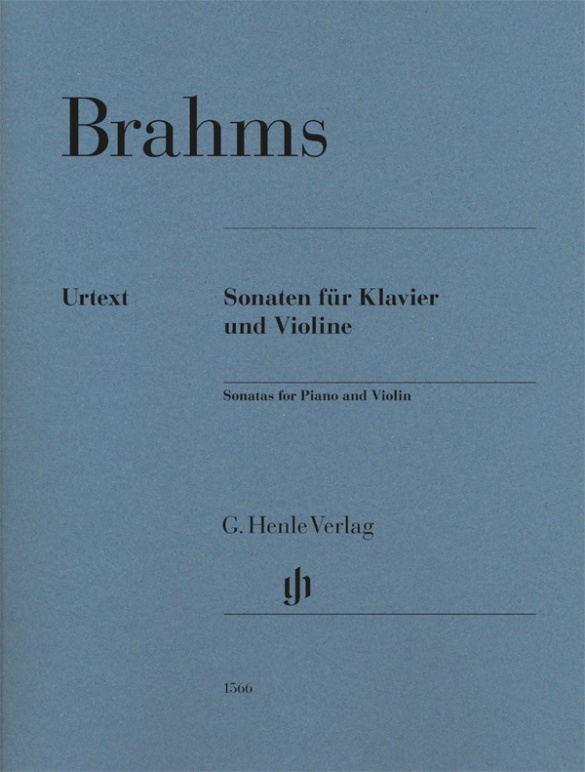

Johannes Brahms
Violin Sonatas
Brahms early on engaged with the violin sonata genre. As early as 1853 he wrote a sonata in a minor, which - like so many other youthful works of this self-critical composer - no longer survives. Thus the G-major sonata op. 78, written in 1878/79, is now counted as his first contribution to the genre; it has the nickname “Regenlied Sonata” (literally “rain-song sonata”) because of the quotation from a song that appears in the finale. In summer 1886 Brahms composed, almost simultaneously, the two sonatas op. 100 and 108. All three works now have a firm place in the violinistic canon.
We round off our volume with the Scherzo in c minor that Brahms contributed to the so-called “F.A.E Sonata”, which he composed together with Robert Schumann and Albert Dietrich as a gift for violinist Joseph Joachim in 1853. With its stark contrast between the turbulent allegro and the emotional più moderato part, his scherzo has become a popular bravura and encore piece.
The present new edition is based on the New Brahms Complete Edition, and offers a musical text and commentary that have been revised according to the latest research. The fingering is by respective masters of their instruments Frank Peter Zimmermann and Martin Helmchen.
Content/Details
About the Composer

Johannes Brahms
His significant output comprises chamber music, piano works, numerous choral compositions and songs (including settings of folk-song lyrics), as well as large-scale orchestral works in the 1870s and 1880s. His compositions are characterized by the process of developing variation. He is considered an antithesis to the New German School around Liszt, and an advocate of “absolute” music.
| 1833 | Born in Hamburg on May 7, the son of a musician. His first piano instruction with Willibald Cossel at age seven, then with Eduard Marxen; first public performances from 1843. |
| 1853 | Concert tour through German cities; he meets Schumann, who announces him as the next great composer in his essay “Neue Bahnen” (“New Paths”). A lifelong, intimate friendship develops with Clara Schumann. |
| 1854–57 | Piano Concerto No. 1 in D minor, Op. 15. |
| 1857–59 | Choir director, pianist, and teacher at the royal court in Detmold. |
| 1859–61 | Director of the Hamburg Women’s Choir. |
| 1860 | Manifesto against the New Germans around Liszt. |
| 1863 | Cantata “Rinaldo,” Op. 50. |
| 1863–64 | Director of the Wiener Singakademie. |
| 1868 | Partial performance in Vienna of “A German Requiem,” Op. 45 (the complete work premiered in Leipzig in 1869) |
| 1871–74 | Artistic director of the Gesellschaft der Musikfreunde (Society of Friends of Music) in Vienna. |
| 1873 | Haydn Variations, Op. 56a, for orchestra. |
| from 1877 | His symphonic output begins with the Symphony No. 1 in C minor, Op. 68 (begun 1862); composition of the Symphony No. 2 in D major, Op. 73; the Symphony No. 3 in F major, Op. 90 (1883); and Symphony No. 4 in E minor, Op. 98 (1884–85): cantabile themes, chamber-music-like style. |
| from 1878 | Travels in Italy. |
| 1878 | Violin Concerto in D major, Op. 77, for Joseph Joachim. |
| 1881 | Piano Concerto No. 2 in B-flat major, Op. 83, with a scherzo movement. |
| 1886 | Honorary president of Vienna’s Tonkünstlerverein (Association of Musicians). |
| 1897 | Four Serious Songs, Op. 121. Dies in Vienna on April 3. |
About the Authors
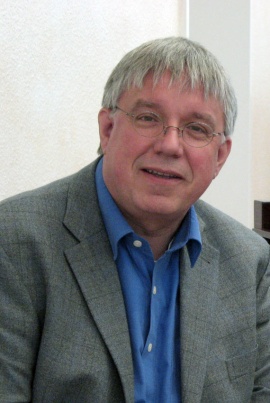
Michael Struck (Editor)
Dr. Michael Struck, born in 1952 in Hannover, studied school music, private music teaching, piano (diploma, class of Werner Schröter), musicology (Constantin Floros) and pedagogy at the music conservatory in Hamburg and at Hamburg University. In 1984 he completed his doctorate with a thesis on Schumann’s controversial late instrumental works.
He is a research associate at the research centre the new “Johannes Brahms Complete Edition” at Kiel University (member of the editorial board), as well as editor and supervisor of numerous volumes. He is the author of many musicological publications on music of the 18th to 20th centuries and other work editions. Struck is also a music critic. As a pianist he has given concerts with the vocal ensemble of Kiel University as well as with the Wiesbaden Chamber Choir and has given concert lectures (in 1989, 1997, 2001, 2005 as part of the matinees on “Raritäten der Klaviermusik” in Husum). In 2009 he was awarded the Schumann Prize of the City of Zwickau, in 2010 as a scholar at the Brahms Research Centre at the Musikwissenschaftliches Institut of Kiel University he was a co-prizewinner of the Brahms Prize 2010, conferred by the Brahms-Gesellschaft Schleswig-Holstein.
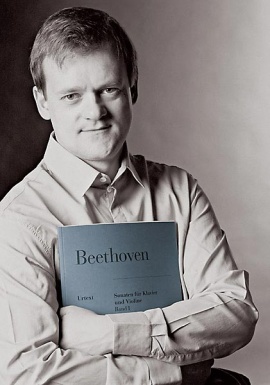
Frank Peter Zimmermann (Fingering and bowing for Violin)
Product Safety Informations (GPSR)

G. Henle Verlag
Here you can find the information about the manufacturer of the product.G. Henle Verlag e.K.
Forstenrieder Allee 122
81476 München
Germany
info@henle.de
www.henle.com
First point of praise – the hair-raising page turns in the 1st sonata have been eliminated with a three-page turnout – thank you, Henle! Henle now provides clean, unfingered parts of the Brahms sonatas which I enjoy playing from, instead of trying to trace my own pencilled preferences among someone else’s inked-in choices. The print is larger, and I notice some of the slurs and tempi in the 1970s version are now not there, obviously due to their exceptional research. If you have an old edition that you use, it’s worth spending the money to replace it with this one.
Stringendo, 2023recommendations
autogenerated_cross_selling
Further editions of this title


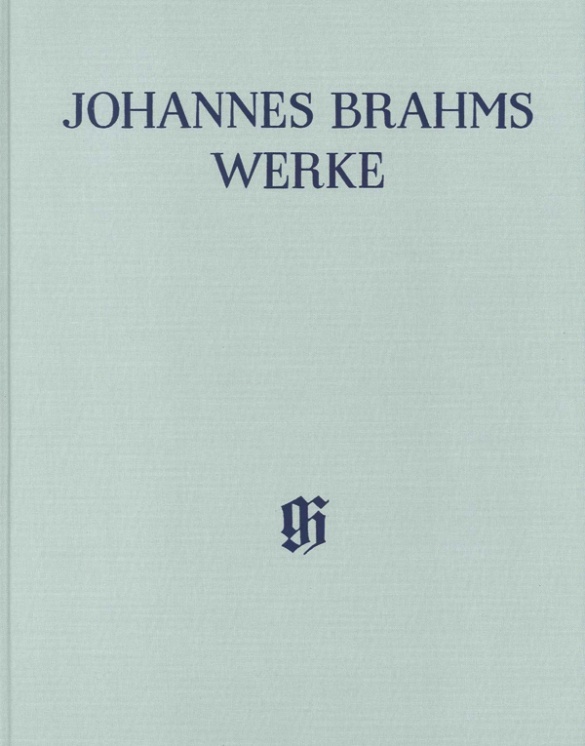
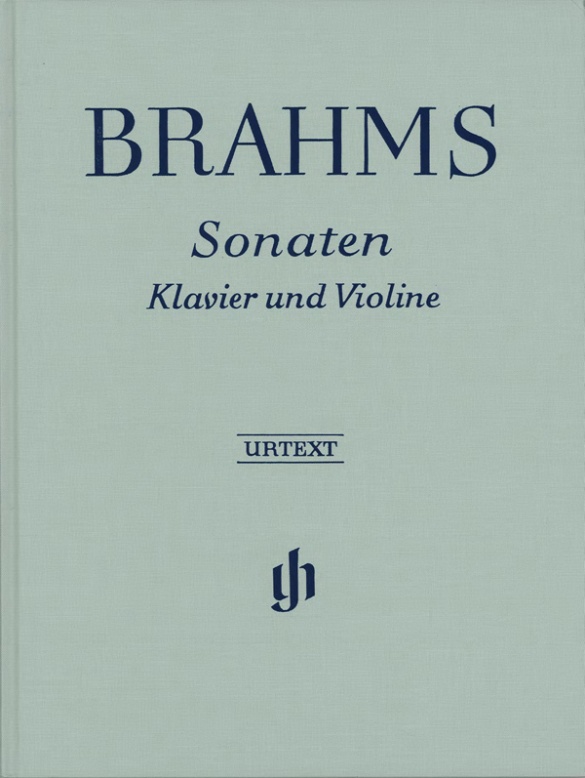

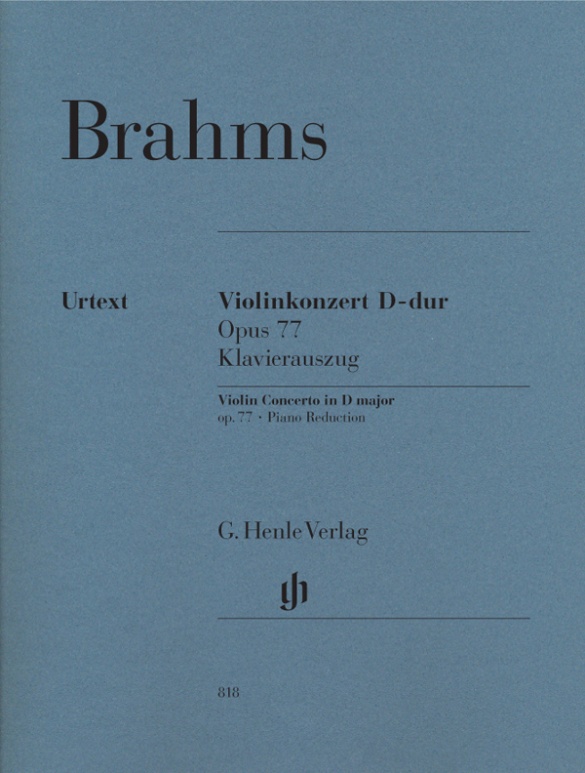
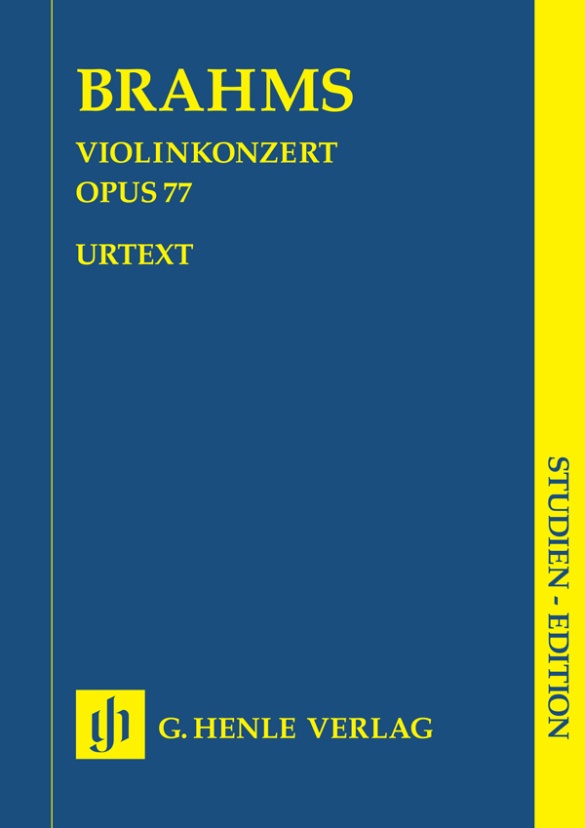
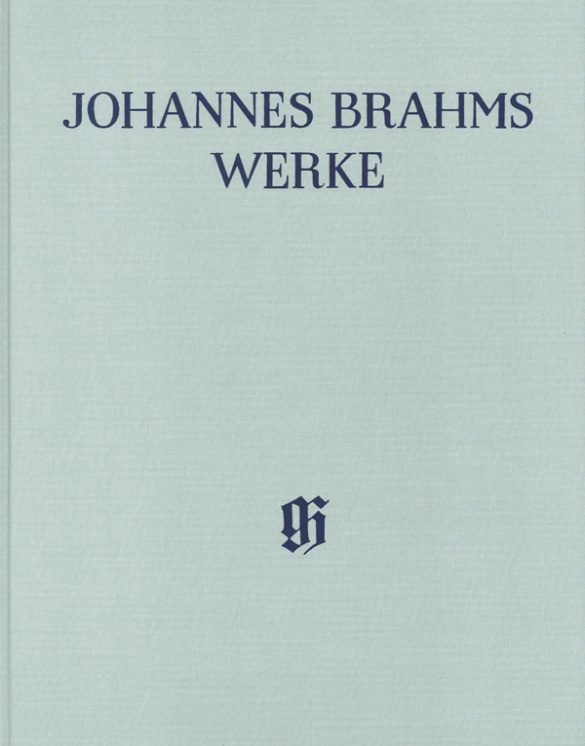
revised edition
replaces HN 194 (paperbound) and HN 195 (clothbound)